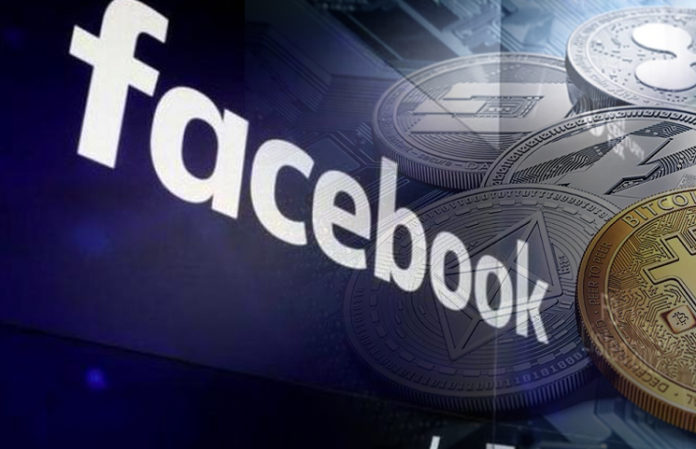Facebook Lifts Ban on Crypto Ads; Will Other Sites Follow?
In one of the quicker and more public about-faces in the tech industry, Facebook announced on June 27 that it would be partially reversing its blanket ban on cryptocurrency ads on its platform. The company was seemingly unable to pass up the million-dollar potential in advertising revenues, so it will allow the sector to market itself again, albeit on a limited basis. The decision, which set a strong tone when first implemented in January, could have the same effect on the market, though it remains too early to tell.
Even so, Facebook’s announcement did unleash some waves in the industry on both sides of the debate. To some, the advertising for the sector remains problematic at best due to the lack of regulation present. To others, the cryptocurrency market is revolutionary and those resisting change are simply standing in the way of progress. Either way, the recent announcement should tip some dominoes in the industry.
Placing and Lifting the Ban in Months
In January 2018, Facebook announced a new advertising policy that would block “financial products and services that are frequently associated with misleading or deceptive promotional practices, such as binary options, initial coin offerings, or cryptocurrency.” The statement was a blow to the blockchain industry and the cryptocurrency asset class that supports it and has used social media extensively as a marketing ground for potential token buyers.
A few months later, the next domino fell when Google (GOOGL -) announced a similar ad ban on cryptocurrency and Initial Coin Offerings – the controversial method of crowdfunding. The company followed similar reasoning to Facebook, and in doing so cut off the second major advertising channel for most crypto-based companies. That was shortly followed by ban announcements from Twitter (TWTR) and Snapchat (SNAP) .
Even so, not every major company followed suit, with many choosing to remain friendly to the emerging industry. ASKfm – one of the largest social question-and-answer platforms – continued its support and allowance of crypto-based ads on their platforms.
ASKfm believes the ban reversal is a positive sign. According to the company, “Facebook reversing the ban shows they finally understood the potential of crypto and that it’s not all scams. The industry is better at self-regulating and more legitimate projects are emerging. It will be interesting to see how quickly Google and other social platforms follow Facebook’s lead and reverse their bans.” One of the top 10 social media sites, ASKfm never banned crypto ads.
Others remain skeptical about Facebook’s true motives behind the partial reversal. According to blockchain-referral platform 2Key Founder and CEO Erez Ben-Kiki, “people should stop asking what’s really behind the policy change. Facebook is making millions selling personal data and using their social activity for advertising. If they really cared about users, they would give them back their own private information.”
Ben-Kiki added that “we’re in the middle of a revolution that seeks to change the way people share information. Many ICOs are funding projects that will offer direct peer-to-peer alternatives to centralized services like Facebook.” Indeed, the ban is seen as positive by many users, though it remains fairly restrictive. For instance, ICOs, which were among the most prolific social media advertisers, remain banned.
What’s Next for Social Media and Crypto Bans?
Most likely, Facebook’s change of heart will push other, smaller social networks to follow suit. Twitter and Snapchat may partially lift restrictions on crypto and exchange ads. According to the decentralized ad network KindAds CEO Saulo Medeiros, “As Facebook reverses the ban, you will see other smaller ad players slowly follow suite. Not all crypto ads are bad, hence the ban doesn’t fully make sense.”
The internet’s gatekeepers are finally waking up to the reality that cryptocurrencies are more than a passing fad or scam. As the asset class gains more legitimacy – either through regulation or greater participation – Facebook and other social media platforms will likely continue to lighten their restrictions. Furthermore, they may intend to embrace the phenomenon themselves by introducing their own tokens to maximize the values of their ecosystem. It’s entirely possible that more clarification on the part of regulators worldwide will also loosen the ban even further.
The Securities and Exchange Commission, which oversees the financial market, recently signaled that it would be more closely examining ICOs. This could help add more legitimacy to ICO’s but it will take time, after several high-profile hacks and schemes left thousands of users without their coins or otherwise defrauded.
Much like other regulated industries, cryptocurrencies could receive inspection on a case-by-case basis. This should create a more open marketing ecosystem. Google, however, will not likely rush to remove the ban. The company is known for its heavier hand, and according to Medeiros, “tends to be stricter with ads than Facebook.”
Google’s strict policies notwithstanding, it’s unlikely the company – which derives a significant amount of its revenue from advertising – will forever abstain from this potentially lucrative industry. Yet, the company’s deliberate pace when it comes to its ad policy means cryptocurrencies and ICOs will likely gain traction in the social media arena and elsewhere for now.
Article written by: Jordan French
0

